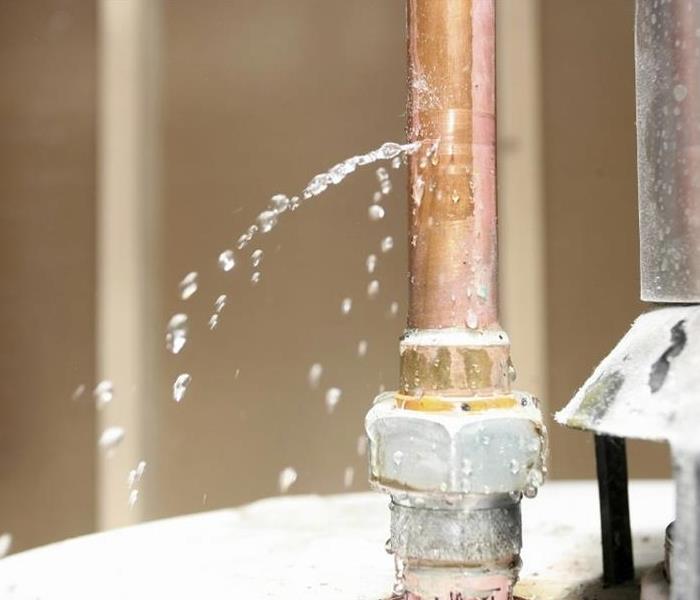Freezing Temps.. Freezing Pipes what you need to know
2/12/2016 (Permalink)
Frozen pipes are dangerous, costly and very terrifying. If you have ever lived through a burst pipe due to frozen water, you know just how damaging and devastating they can be. If you have not, follow the steps below to help prevent them. Should you have a pipe burst please make sure you call someone immediately .In as little as two days you will start to get mold growth creating an even larger issue
What causes frozen pipes?
The recent extreme cold temperatures coming in have will create an increased risk for a frozen or burst pipe. As the temperatures drop, water in your pipes starts turning to ice. The problem will be not when it is frozen but on Monday and Tuesday when the temperatures start to warm up and the ice melts and water starts to flow out of the cracks in the pipes.
Ice causes pressure and blockage. Over time, the pressure can cause a pip to burst. This ends water flow to fixtures, causes leaks and will end in a major damage not only to the pipe but to your home or office. It does not matter what the pipe is made out of the increased pressure occurs to all pipes, including plastic, copper or steel.
Even a tiny crack in your plumbing line can release more than 250 gallons of water in a single day. That much water gushing out of your plumbing system can cause significant damage and high repair costs. Any delay in remedying the situation can result in a more costly delay.
How can I prevent frozen pipes?
What should I do if I have frozen pipes?
Sometimes, despite the best efforts, things happen. If you know or suspect you a problem with frozen pipes, here are some immediate steps to take:
STAY SAFE, WARM, AND HAPPY!!!





 24/7 Emergency Service
24/7 Emergency Service
